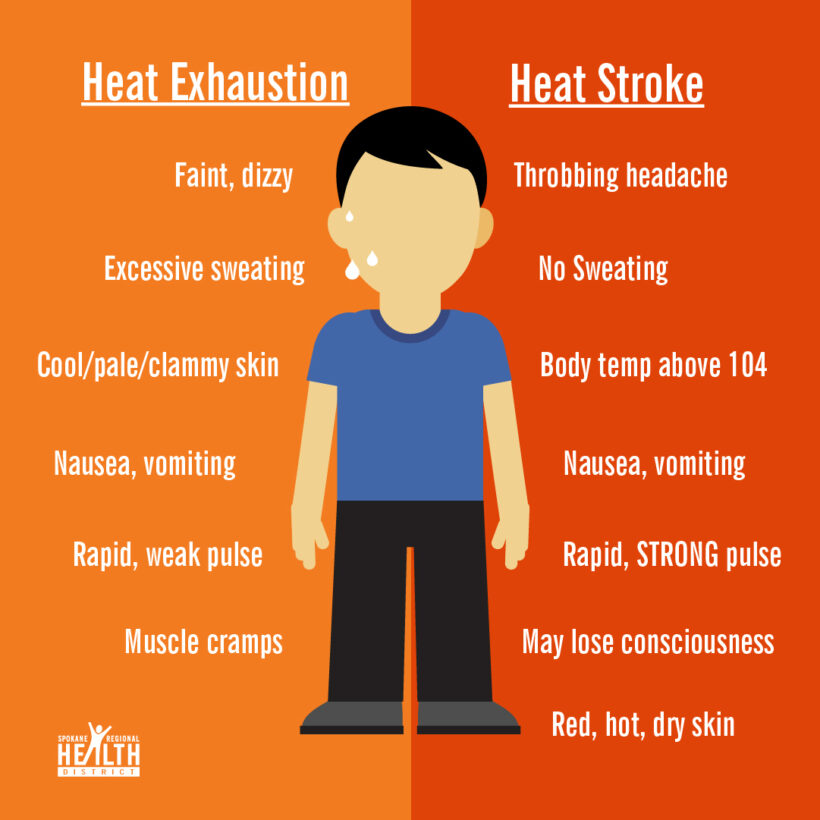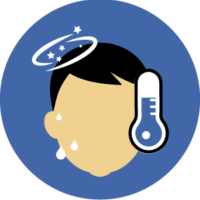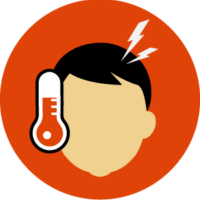
Beat the Summer Heat!
We know one of the best parts of summer is heading outdoors to soak up the sun and enjoy the many warm weather activities that come with it. While the sun is a nice change from the cold and rainy spring we had, it’s important to consider the health risks that are associated with higher temperatures and find ways to keep ourselves and others safe in the heat.
Do you Know the Difference Between Heat Exhaustion and Heat Stroke?

While "heat exhaustion" and "heat stroke" might seem like the same thing, there are key differences between the two, and knowing which one you or a loved one might be experiencing can help you determine the best way to take action and prevent further heat-related complications.

Heat Exhaustion
Heat exhaustion occurs when your body can no longer cool itself down. It’s often a result of dehydration from working, playing, or exercising in the sun with little to no fluids. While sweating is a natural response to keep your body from overheating, it also relies on your water intake.
If you’re dehydrated, you have less water to sweat out to keep your body cool. This can lead to symptoms of heat exhaustion which include pale or clammy skin, body weakness, nausea and/or vomiting, headaches, and feeling lightheaded or dizzy.
If you suspect someone may be experiencing heat exhaustion, move the individual to a shady area if you're outside or head indoors if you can. Remove any unnecessary clothing, like shoes and socks, and put a damp wash cloth on their neck and/or forehead to reduce their body temperature. If indoors or near a water source, encourage the individual to drink water too.

Heat Stroke
Heat stroke is a medical emergency that occurs when symptoms of heat exhaustion are not treated. The most common signs of heat stroke include skin that is dry and hot, a body temperature above 104° F, feeling confused or dazed, loss of consciousness, nauseous and/or vomiting, and fast breathing with a rapid heart rate.
If you suspect someone may be experiencing heat stroke, seek medical attention right away or call 911. Heat stroke can cause organ failure, brain damage, and even death if not treated immediately. As you wait for medical staff or head to the hospital, follow the tips for heat exhaustion to stay pro-active and prevent their symptoms from worsening.
It's also important to keep in mind that some people are at higher risk for heat exhaustion or heat stroke. This includes people 65 years and older, infants and young children, and people who work outside. Learn more at: srhd.org/extremeheat
How Can I Protect Myself and Others from Extreme Heat?
While heat exhaustion and heat stroke are things you should be aware of this summer, it doesn't mean you can't have any fun! There are plenty of ways our community can stay healthy while enjoying the sunshine. Just keep these tips in mind:
- Drink plenty of fluids if you plan to be outdoors and make sure kids and pets have plenty of water too.
- Consider planning outdoor activities for the morning or evening when the temperatures are likely to be cooler.
- Take breaks when playing in the sun and find a shady area where you can rest and cool off.
- Call 211 to find a cooling shelter in your area if you don't have access to air conditioning in your home.
- Never leave infants, children, people needing mobility assistance, or pets in a parked car even with the windows partially opened.
Plus, don't forget to apply sunscreen! Protecting your skin is an important part of protecting your health too. Apply a broad-spectrum sunscreen at least 30 minutes before going out to prevent sunburns and to protect your skin from the sun's UV rays.
Enjoy the Sun, But Stay Safe!
Now that we've talked about ways you can beat the heat or offer aid to someone who may be experiencing heat exhaustion or heat stroke, we hope everyone has a chance to get outside and enjoy their favorite summer activities safely. We all deserve the sunshine after a cold and rainy spring! For more information and resources, visit: srhd.org/extremeheat
